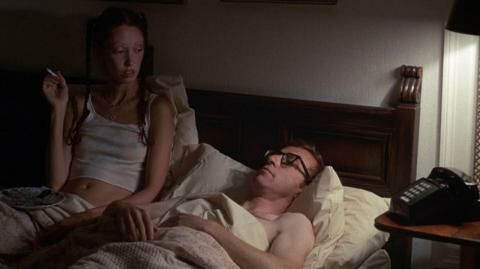Once you've had your orgasm, is all you want to do is fall asleep comfortably on your pillow? Although this attitude could be negatively viewed by your partner and may be one of the things not to do after sex, it is nevertheless relatively normal. Your female partners can themselves in turn be affected by this phenomenon... provided they have had an orgasm as well. Let's break down why we fall asleep after having sex.
Discover our latest podcast
An area of the brain that goes into sleep mode
In 2012, doctor and psychiatrist Serge Stoléru initiated and published a study on the reaction of the female and male brains after an orgasm. And in the same way that men have an Adam's apple and women do not, their bodies’ reactions are different. He came to the conclusion that during orgasm and ejaculation, the male prefrontal cortex, the seat of conscious thought, is put on standby. Once the orgasm has passed, the cingulate cortex and amygdala take over to release serotonin and opioids to extinguish sexual desire.
It is probably this sequence that causes men to experience what is known as a refractory period after sex: most can no longer be sexually stimulated. Women do not experience this phenomenon, which often allows them to have two (or more) orgasms in a row (this is also possible for men with the edging method, but it requires some practice).
Different hormones after orgasm
When we have an orgasm, the brain secretes a cocktail of pleasure-related hormones: dopamine, serotonin, prolactin, endorphins, oxytocin, and even melatonin. The brains of men and women secrete the same hormones, but one of them is particularly important when it comes to our topic: oxytocin. This is because it is not felt with the same intensity by both partners.
Oxytocin is often considered the hormone of love and attachment. It is secreted after an orgasm, but not only at this point: in pregnant women, it is the hormone that helps the expulsion of the foetus, provokes a state of euphoria in the mother, and favours the attachment between mother and child after the birth.
In the context of a sexual relationship, it is what creates a bond between the two lovers by promoting relaxation and reducing anxiety and stress. The only problem is that testosterone tends to inhibit oxytocin. In men with a high level of testosterone, all that is left is a huge hormonal cocktail that is especially conducive to sleep.
Women don't want to sleep... if they haven’t had an orgasm
If you are one of those men who love to fall asleep quickly after sex and are surprised that your female partner doesn't have the same reaction, the answer may, unfortunately, lie in your performance... A woman is more likely to feel the same as you if she has reached orgasm herself! However, this is not the case for one in three women.
In 2002, a study by Dr Tillmann HC Krüger, a psychiatrist who also specialises in neurological reactions and sexual medicine, showed that the brains of men and women secrete a much higher amount of prolactin after an orgasm. Prolactin has the effect of significantly reducing the libido for a short period of time.
It also turns out that prolactin levels in the brain remain unchanged if an orgasm has not been achieved. And this is true whether you are a man or a woman, after an orgasm, women might not want to sleep as much as men do, but their libido has nonetheless been satisfied. It might be worthwhile to take a closer look at the clitoris.
Urban legends about men's behaviour after sex
The question of why men are more likely to feel sleepy after sex is obviously not new to Serge Soléru's work, and before him, other scientists and researchers from outside the field of neuroscience have tried to find an answer.
In 2006, writer Mark Leyner collaborated with A&E doctor Billy Goldberg to produce a book entitled Why Do Men Fall Asleep After Sex? They claim that since men have a higher muscle mass, they are more tired than women are. Although Leyner's books are generally comical and absurd, this information could be taken at face value by some people.
However, a study published in 2013 (i.e., after the book was published, to be fair to the authors) showed that the energy expenditure that takes place during sex is quite insignificant: about 101 kCal for men and 69 kCal for women. In other words, not enough to be so exhausting that you suddenly feel the need to sleep.
Barbara and Allan Pease, an Australian couple who are both psychologists, also tried to explain this phenomenon through the prism of psychology. In a book called Why Men Don’t Listen and Women Can't Read Maps, they explain that this difference in behaviour between men and women after sex is simply due to their supposed difference in character. Men don't like to talk about their feelings and simply fall asleep so they don't have to talk to their partner. This could hardly be more cliché...
We reassure you that the desire to sleep is simply due to hormones secreted by the brain.















